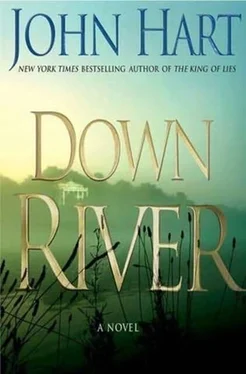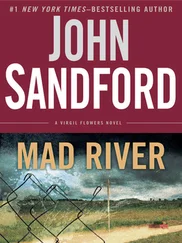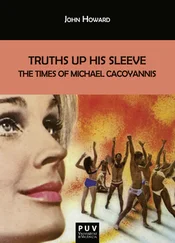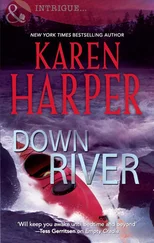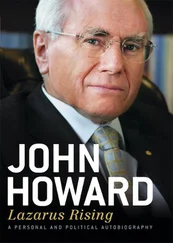
© John Hart 2007
The river is my earliest memory. The front porch of my father’s house looks down on it from a low knoll, and I have pictures, faded yellow, of my first days on that porch. I slept in my mother’s arms as she rocked there, played in the dust while my father fished, and I know the feel of that river even now: the slow churn of red clay, the back eddies under cut banks, the secrets it whispered to the hard, pink granite of Rowan County. Everything that shaped me happened near that river. I lost my mother in sight of it, fell in love on its banks. I could smell it on the day my father drove me out. It was part of my soul, and I thought I’d lost it forever.
But things can change, that’s what I told myself. Mistakes can be undone, wrongs righted. That’s what brought me home.
Hope.
And anger.
I’d been awake for thirty-six hours and driving for ten. Restless weeks, sleepless nights, and the decision stole into me like a thief. I never planned to go back to North Carolina-I’d buried it-but I blinked and found my hands on the wheel, Manhattan a sinking island to the north. I wore a week-old beard and three-day denim, felt stretched by an edginess that bordered on pain, but no one here would fail to recognize me. That’s what home was all about, for good or bad.
My foot came off the gas as I hit the river. The sun still hung below the trees, but I felt the rise of it, the hard, hot push of it. I stopped the car on the far side of the bridge, stepped out onto crushed gravel, and looked down at the Yadkin River. It started in the mountains and stretched through both Carolinas. Eight miles from where I stood, it touched the northern edge of Red Water Farm, land that had been in my family since 1789. Another mile and it slid past my father’s house.
We’d not spoken in five years, my father and me.
But that was not my fault.
I carried a beer down the bank and stood at the verge of the river. Trash and flat dirt stretched away beneath the crumbling bridge. Willows leaned out and I saw milk jugs tied to low limbs and floating on the current. They’d have hooks near the mud, and one of them rode low in the water. I watched it for motion and cracked the beer. The jug sank lower and turned against the current. It moved upstream and put a V in the water behind it. The limb twitched and the jug stopped, white plastic stained red by the river.
I closed my eyes and thought of the people I’d been forced to leave. After so many years, I’d expect their faces to pale, their voices to thin out, but that’s not how it was. Memory rose up, stark and fresh, and I could not deny it.
Not anymore.
When I climbed up from beneath the bridge, I found a young boy on a dusty bike. He had one foot on the ground and a halting smile. He was maybe ten, in blown-out jeans and old canvas high-tops. A bucket hung from his shoulder by a knotted rope. Next to him, my big German car looked like a spaceship from another world.
“Morning,” I said.
“Yes, sir.” He nodded, but did not get off of the bike.
“Jug fishing?” I asked him, gesturing down to the willows.
“Got two yesterday,” he said.
“Three jugs down there.”
He shook his head. “One of them is my daddy’s. It wouldn’t count.”
“There’s something pretty heavy on the middle one.” His face lit up, and I knew that it was his jug, not his old man’s. “Need any help?” I asked.
“No, sir.”
I’d pulled some catfish out of the river when I was a boy, and based on the unmoving pull on that middle jug, I thought he might have a monster on his hands, a black-skinned, bottom-sucking beast that could easily go twenty pounds.
“That bucket won’t be big enough,” I told him.
“I’ll clean him here.” His fingers moved with pride to a thin knife on his belt. It had a stained wooden handle with pale, brushed-metal rivets. The scabbard was black leather that showed white cracks where he’d failed to oil it properly. He touched the hilt once and I sensed his eagerness.
“All right, then. Good luck.”
I took a wide path around him, and he stayed on his bike until I unlocked my car and climbed in. He looked from me to the river and the grin spread as he shrugged off the bucket and swung one narrow leg over the back of the bike. As I pulled onto the road I looked for him in the mirror: a dusty boy in a soft yellow world.
I could almost remember how that felt.
I covered a mile before the sun made its full assault. It was too much for my scorched eyes and I pulled on dark glasses. New York had taught me about hard stone, narrowness, and gray shadow. This was so open. So lush. A word fingered the back of my mind.
Verdant.
So damn verdant.
Somehow, I’d forgotten, and that was wrong in more ways than I could count.
I made successive turns, and the roads narrowed. My foot pressed down and I hit the northern edge of my father’s farm doing seventy; I couldn’t help it. The land was scarred with emotion. Love and loss and a quiet, corrosive anguish. The entrance rushed past, an open gate and a long drive through rolling green. The needle touched eighty, and everything bad crashed down so that I could barely see the rest of it. The good stuff. The years before it all fell apart.
The Salisbury city limit came up fifteen minutes later and I slowed to a crawl as I pulled on a baseball cap to help hide my face. My fascination with this place was morbid, I knew, but it had been my home and I’d loved it, so I drove through town to check it out. It was still historic and rich, still small and Southern, and I wondered if it had the taste of me even now, so many years after it had spit me out.
I drove past the renovated train station and the old mansions stuffed with money, turned my face away from men on familiar benches and women in bright clothes. I stopped at a light, watched lawyers carry large cases up broad stairs, then turned left and lingered in front of the courthouse. I could recall the eyes of every person on the jury, feel the grain of wood at the table where I’d sat for three long weeks. If I closed my eyes now, I could feel the crush of bodies on the courthouse steps, the near physical slap of fierce words and bright, flashing teeth.
Not guilty.
The words had unleashed a fury.
I took a last look. It was all there, and wrong, and I could not deny the resentment that burned in me. My fingers dug at the wheel, the day tilted, and the anger expanded in my chest until I thought I might choke on it.
I rolled south on Main Street, then west. Five miles out I found the Faithful Motel. In my absence, and unsurprisingly, it had continued its roadside spiral into utter decay. Twenty years ago it did a booming business, but traffic trailed off when the church moms and preachers drove a stake through the triple-X drive-in across the street. Now it was a dump, a long strip of weathered doors with hourly rates, weekly tenants, and migrant workers shoved in four to a room.
I knew the guy whose father ran it: Danny Faith, who had been my friend. We’d grown up together, had some laughs. He was a brawler and a drinker, a part-time pair of hands on the farm when things got busy. Three weeks ago he’d called me, the first person to track me down after I’d been hounded out of town. I had no idea how he’d found me, but it couldn’t have been that hard. Danny was a stand-up guy, good in a tight corner, but he was no deep thinker. He’d called me for help, and asked me to come home. I’d told him no. Home was lost to me. All of it. Lost.
Читать дальше
